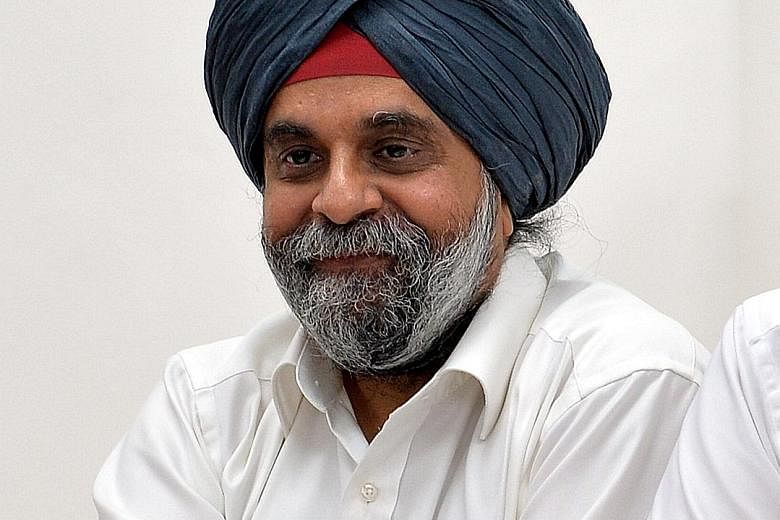Singapore has relied too heavily on multinational companies to grow its economy at the expense of nurturing home-grown firms, according to former People's Action Party MP Inderjit Singh.
Mr Singh said more can be done to help small and medium-sized enterprises (SMEs) access financing, commercialise their innovations and grow overseas.
His suggestions, which are detailed in a 28-page paper he shared with The Straits Times, include establishing a dedicated government agency for SMEs and start-ups as well as setting up a committee to look into high business costs.
Singapore's business landscape has traditionally been geared towards multinationals, even as SMEs struggle to compete in the face of rising costs - such as rent for industrial space - and a shortage of growth-stage financing, Mr Singh noted.
"When the multinational-driven economy had run the full course by the end of the 20th century, we should have shifted gears, focusing on developing more local enterprises that can one day become home-grown multinationals.
"To be fair, the Government did start 'growing the external wing' of the economy some years ago, but the overwhelming focus on the old multinational model means we did not focus enough in growing local enterprises that could go global.
"How many new large multinationals did Singapore create in the last 10 years - not many, unfortunately."
Mr Singh, a serial entrepreneur and now chief executive of Solstar International, a Singapore-based consumer electronics products company, had been a vocal champion for SMEs during his time in Parliament.
The recommendations outlined in his paper include:
• Creating a single government agency focused on helping SMEs and start-ups with growth, financing and internationalisation;
• Improving access to debt and equity financing by setting up institutions like an SME bank and a private equity exchange;
• Setting up a cost competitiveness committee to address rising business and living costs;
• Helping SMEs manage the cost of industrial rent and land by increasing the share of industrial space owned by JTC;
• Making it easier for companies and research institutes to commercialise intellectual property, for instance by introducing short-term licensing; and
• Introducing a minimum wage scheme tied to compulsory regular upgrading of skills.
Mr Kurt Wee, president of the Association of Small and Medium Enterprises, agreed that high costs have hit businesses hard and dented Singapore's competitiveness.
For instance, wage increases have outpaced productivity improvements in recent years, squeezing companies' margins and forcing many to downsize, he said.
"The good thing is that there has been a lot of encouragement and programmes to help companies transform and become more productive and efficient. But the pace at which costs have picked up over the last six to seven years is very high relative to the level of help."
Ultimately, both companies and workers have to work together to transform and improve productivity, Mr Wee said.
DBS senior economist Irvin Seah noted that a number of issues flagged by Mr Singh are "long-held concerns".
Mr Seah said: "SMEs need to become the next growth engine for Singapore. For that to happen, home-grown SMEs need to become global players. The question is why we haven't been able to produce a sizeable pool of such SMEs."
Some blame the high cost of doing business or government policies not being supportive enough, but Mr Seah noted that companies themselves have to be willing to take on bigger risks.
"To venture overseas we need to step out of our comfort zone and this could be challenging for some companies and some Singaporeans. Companies need to accept greater uncertainty and be adaptable... and have an agile mindset," he added.
A spokesman for the Ministry of Trade and Industry welcomed Mr Singh's view but noted that "ultimately trade-offs and choices need to made".
The spokesman noted that over the years, many measures to help companies have been introduced. The work of the Committee on the Future Economy and now the tripartite Future Economy Council is part of ongoing efforts to transform Singapore's economy.
"In particular, the proposed establishment of Enterprise Singapore, through the merger of IE Singapore and Spring, will better integrate and coordinate support for our companies at all stages of their growth."
MTI said that it will continue to work with all stakeholders and encouraged Mr Singh "to share his ideas and engage the economic agencies more closely".


